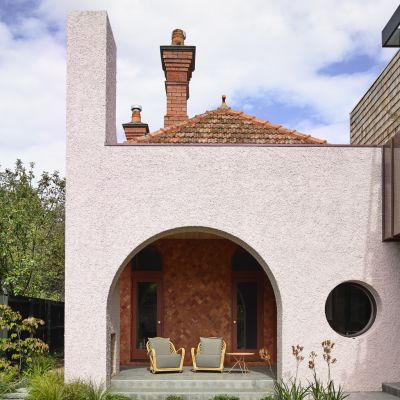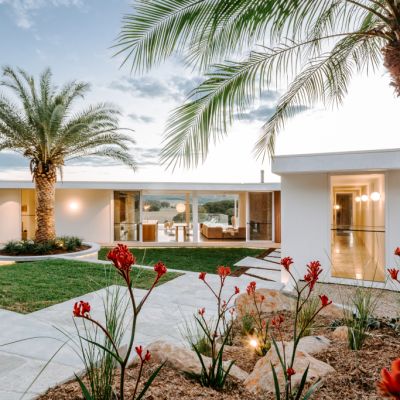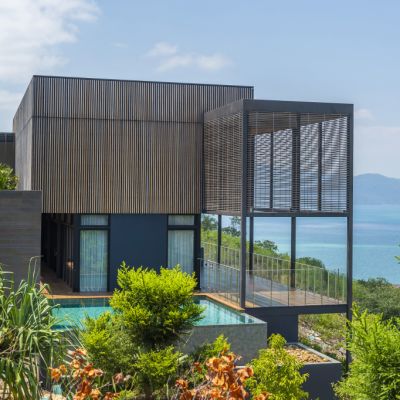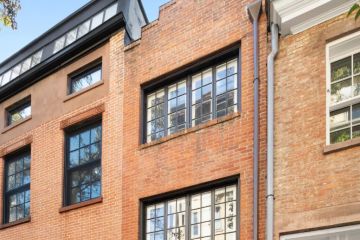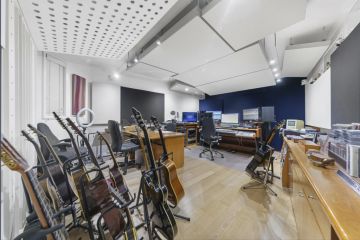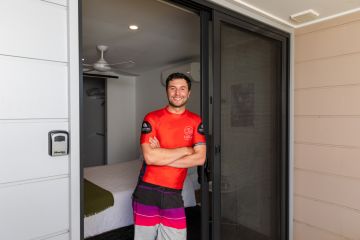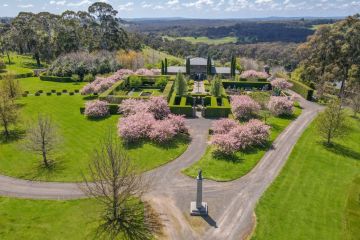Small yet mighty: Inside the Redfern terrace conversion proving no space is too little
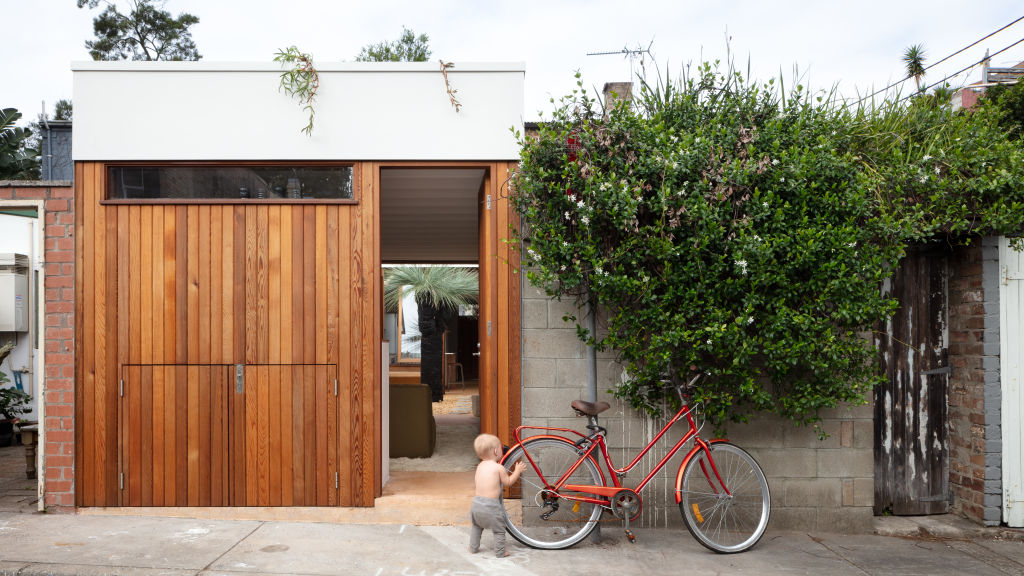
They say the best things come in small packages, but is that really the case when we’re talking about people’s homes?
As someone who grew up in a family of four that lived in a 56 square metre apartment (this was, clearly, not in Australia), I can unquestionably say – yes.
Small spaces make us use and appreciate every single room, corner, available surface, piece of furniture.
There’s zero room for wastage, not to mention that compact spaces make for close families.
Ok, I may have made the last bit up, as it probably also makes for frustrated families in equal measure, but you catch my drift.
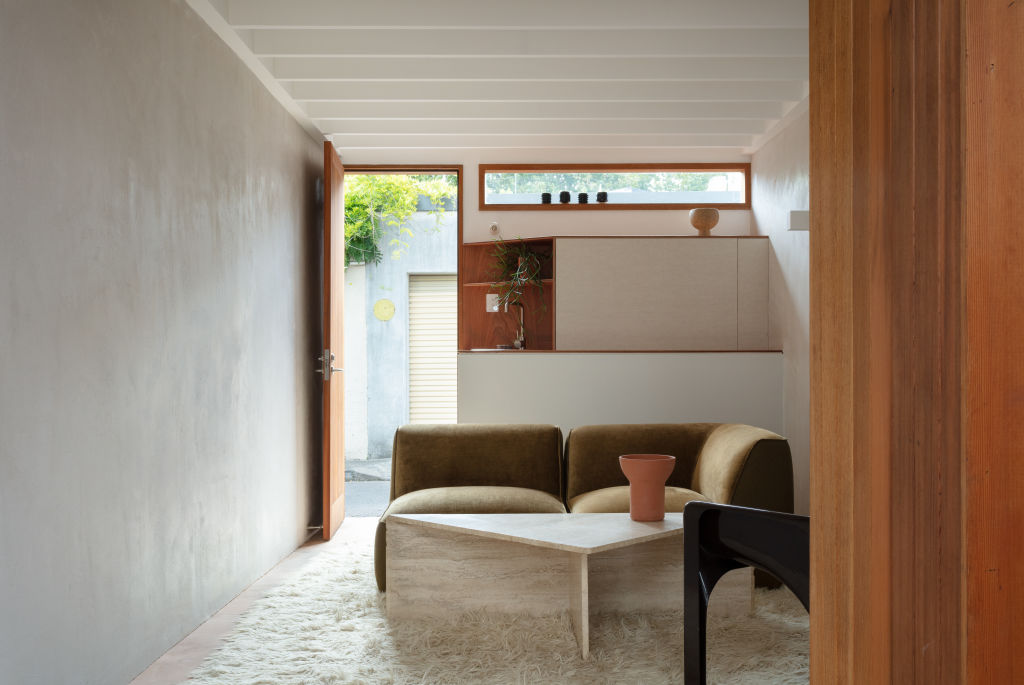
While Riley’s Terrace, by Adele McNab Architecture, in Sydney’s Redfern is a far cry from my small childhood apartment, it too works super hard on a narrow and modest site.
At just three metres wide and a 60-square-metre footprint, this home utilises space to full advantage while creating an illusion of a larger area.
“Riley’s Terrace is a deeply personal project as it was the chance to be my own client during a time when I was heavily pregnant with my first child,” says McNab.
“It was also a time of not only personal uncertainty, but global uncertainty, and this shaped various design decisions.”
To make matters more interesting, it wasn’t just the available space that was modest.
The budget was limited too, especially when considering the extent of the alteration and the potential unknowns that typically arise with terrace renovations.
“Certain design elements such as re-using existing floorboards, re-purposing original bricks and using a raw material palette all helped to keep the budget on track,” explains McNab.
“The integration of more expensive materials, such as cedar and marble were specified for detailed areas to complement the existing materials.”
The terrace features two distinct buildings connected by the courtyard — the one facing the street contains all the spaces for living, while the back laneway building is flexible and can be converted into accommodation for visiting parents and friends, an additional living room, or — during the current pandemic — a studio to work from.
The micro nature of the site made the design of the circulation challenging, particularly in accommodating the ergonomics of the kitchen in a narrow, small space.
“Space efficiency techniques such as the inclusion of an in-situ bench seat in the kitchen with awning windows doubling as rain protection enable year-round use and increase the indoor kitchen space out into the courtyard,” says McNab.
Speaking of the courtyard — it is perhaps the most poetic and unexpected resolution of the entire project.
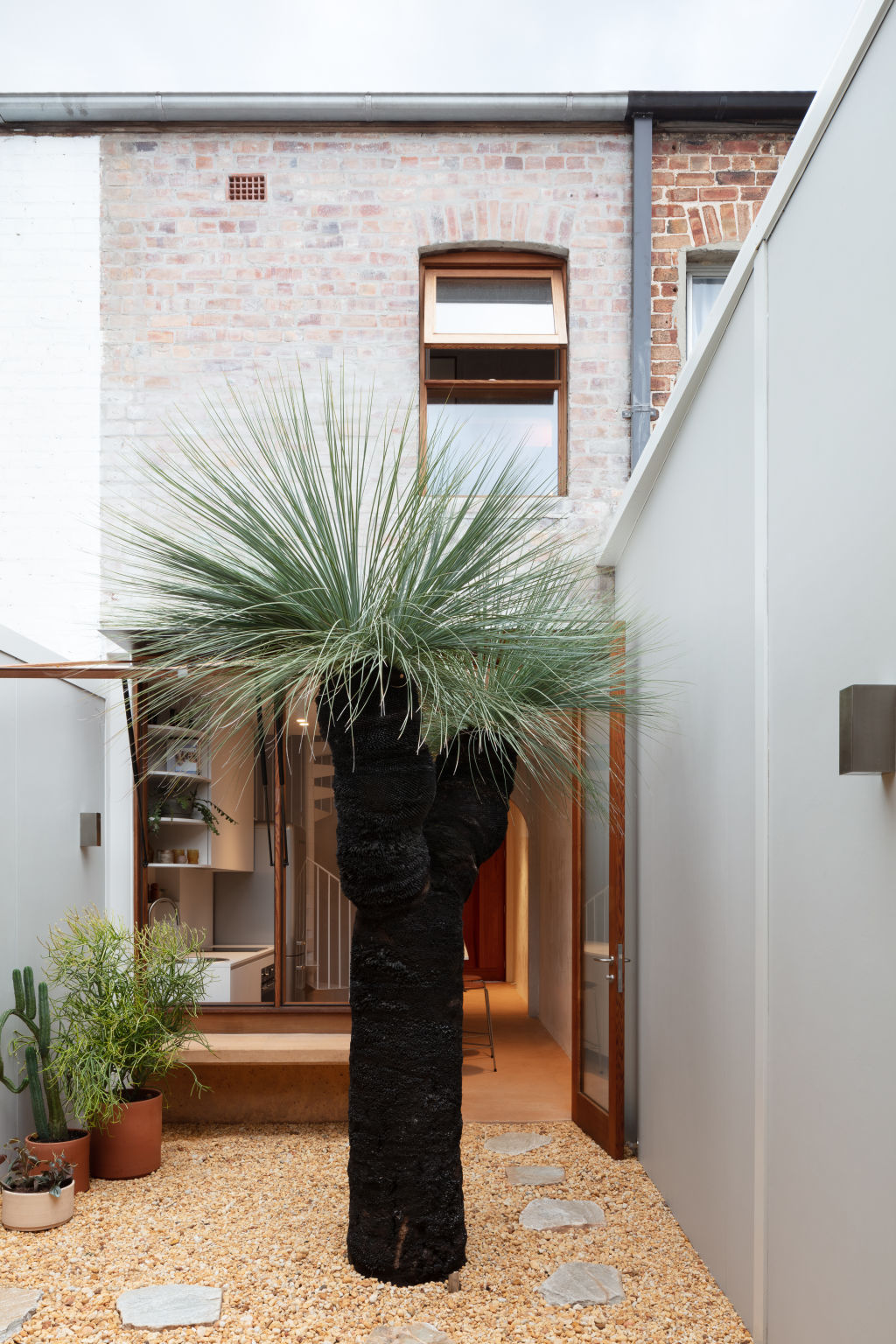
With an established Grass Tree proudly anchoring the site, Cowra Gold pebbles tonally link the two internal spaces on either side.
The outdoor shower offers tranquilly and cools down the occupants on a hot day.
This deliberately uncovered outdoor space creates a strong connection to the elements when moving between the front and back.
“With the project being sandwiched in the middle of the terrace row meant that clever ways of accessing light deeper into the home were vital,” explains McNab.
“Centralising the courtyard on the site elongates the spaces and provides a feeling of expansion as you move through the house. It also helps to establish the heart of the house. Enabling natural light to filter into all parts of the terrace throughout the day was incredibly important, not only for practical reasons but particularly to help nurture my family’s mental wellbeing.”
Punching well above its weight in terms of size, Adele McNab delivers a beautiful renovation that’s not only space-smart, it also provides a series of delightful surprises along the way.
We thought you might like
States
Capital Cities
Capital Cities - Rentals
Popular Areas
Allhomes
More
